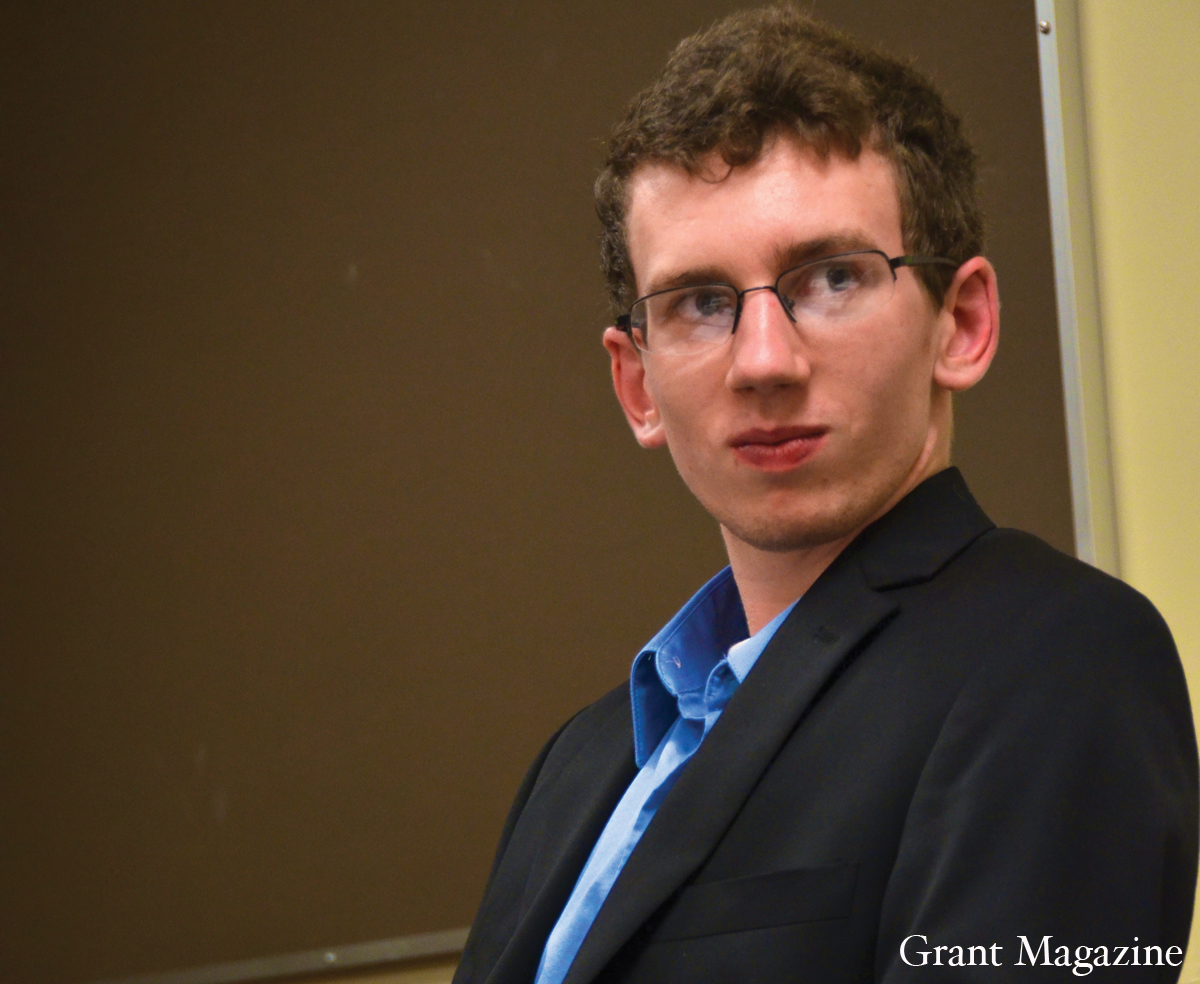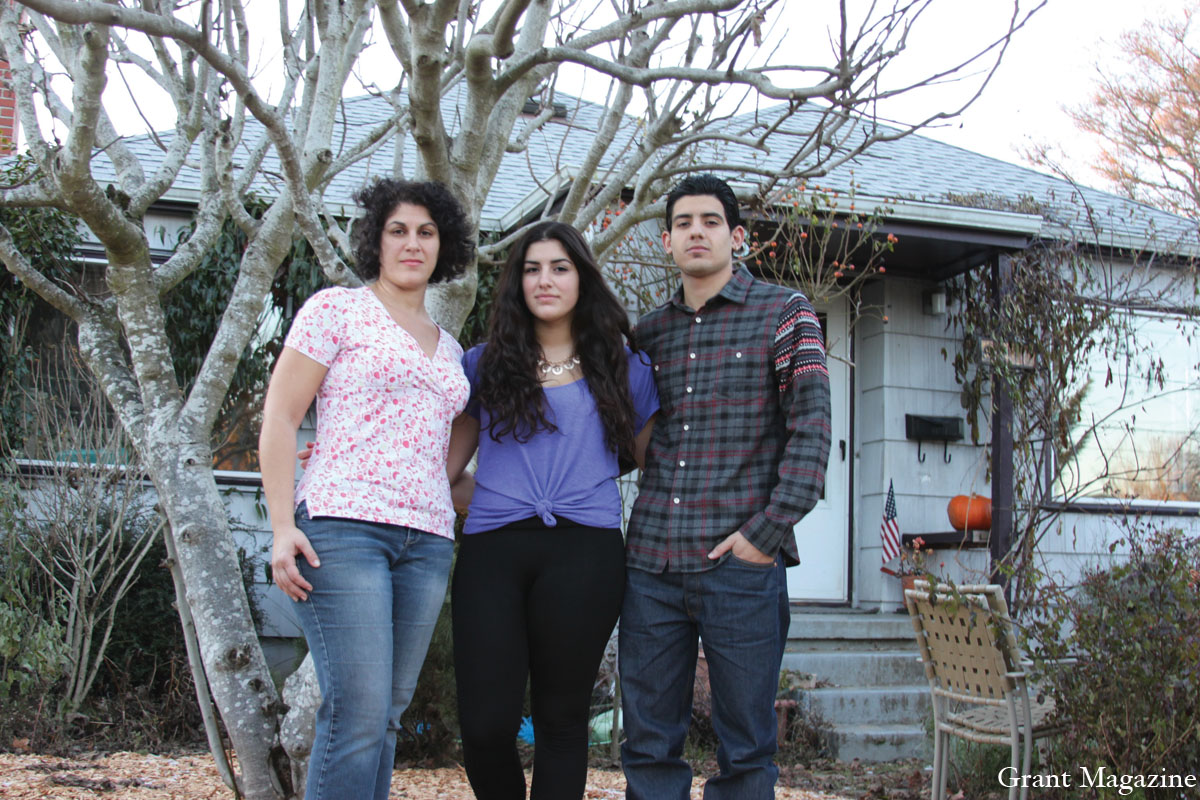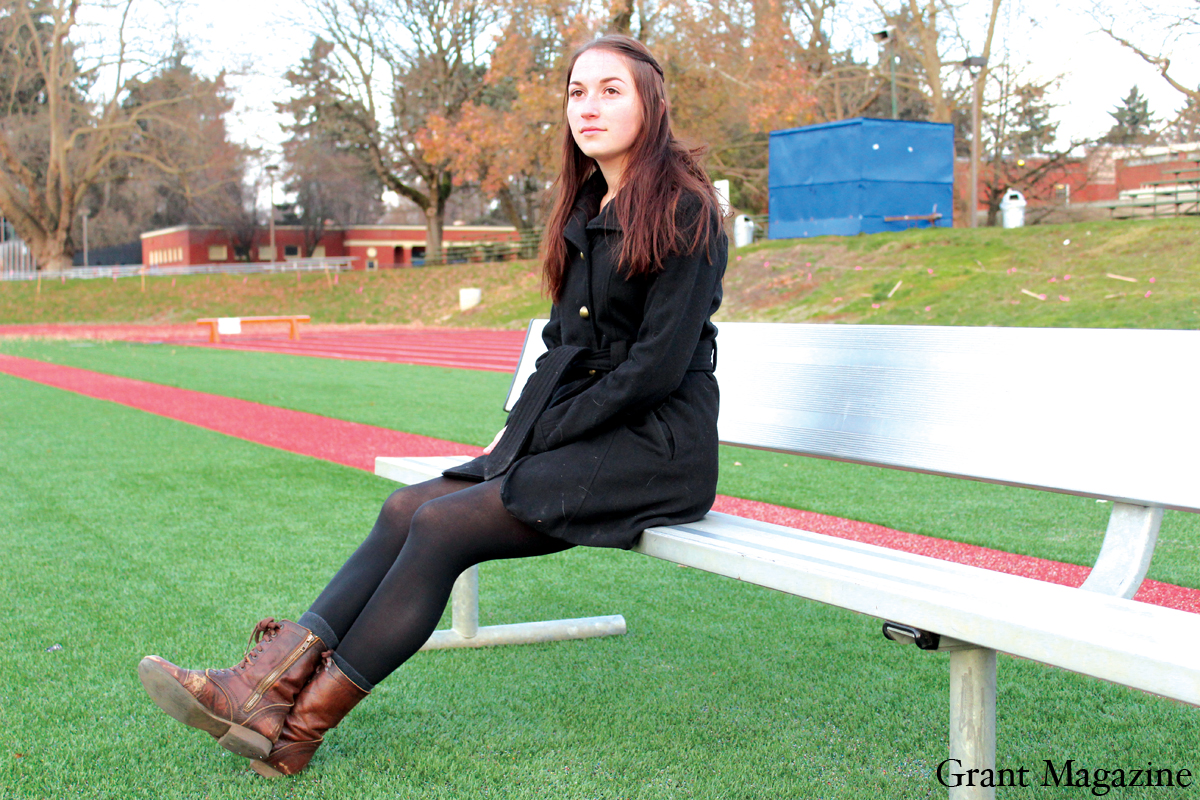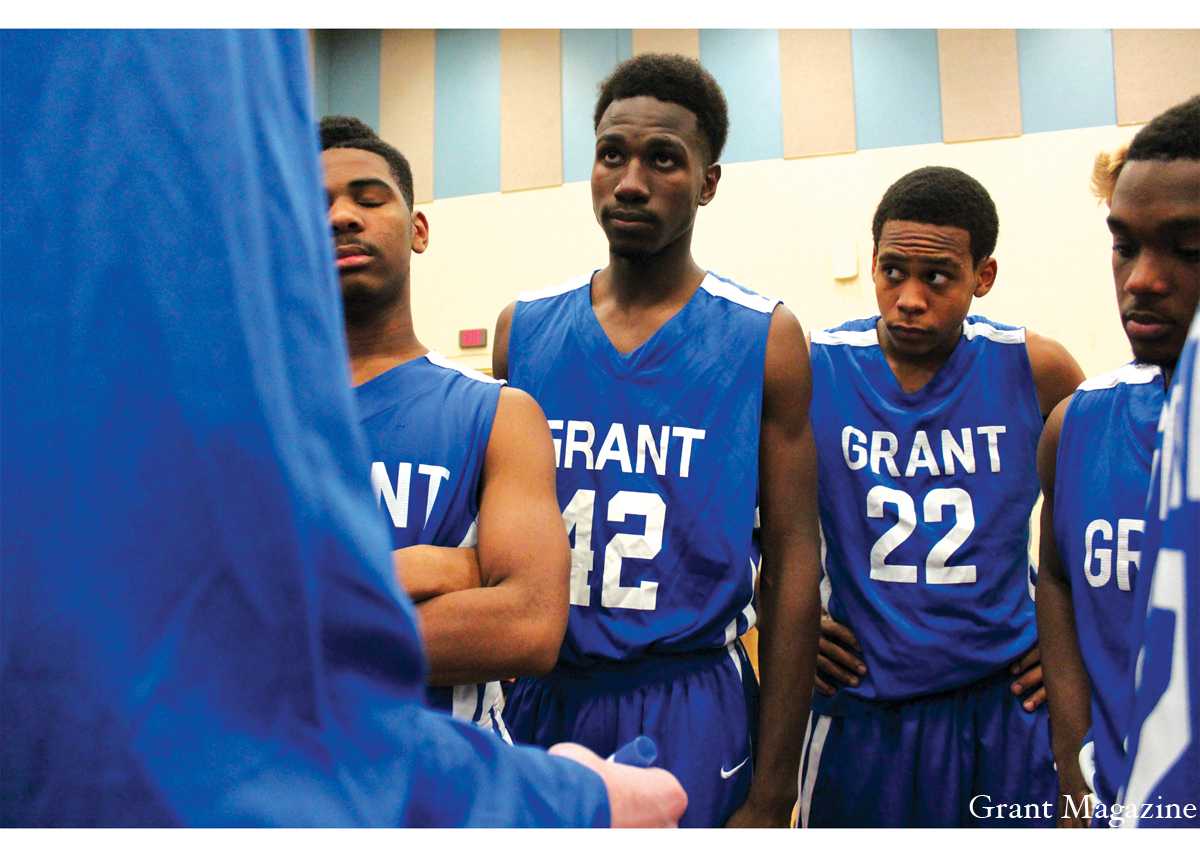The rhythmic ticking of the clock’s second hand is barely audible through the sound of shuffling papers. It’s 4:08 p.m. Seven minutes to go.
Grant High School senior Andrew Davidson waits patiently for the meeting to begin in a conference room at the Blanchard Education Service Center in North Portland. Decked out in business attire, he takes out his notebook and reviews the meeting’s agenda, pen twirling at the ready in his hand.
Several rain-soaked teens walk in. Their chatter enlivens the silence as the group settles in, assuming their spots around a long wooden table. Notebooks, computers and water bottles appear as students discard raincoats and scarves onto the floor.
This is a typical Wednesday night for the Superintendent Student Advisory Committee, or “SuperSAC.” It’s an organization comprised of students from various high schools throughout the district that approach issues from a student perspective.
Davidson, the organization’s chairman, leads the meeting by jumping straight into the logistics of their most recent undertaking: a forum centered around the effectiveness of standardized testing.
As the sole Portland Public Schools student representative on the school board, Davidson’s job is to bridge the gap between the district and the students within. Not only does he represent the entire student body of Grant, but also of every other school in the district. Technically, Davidson is the voice of 48,000 students. “I’m the whole representative,” he chuckles. “I represent everyone.”
Davidson was born and raised in NE Portland. His father, Jon, is a customer service agent for an industrial distribution company called Airgas. His mother, Lisa Davidson, works full time as a teacher at Glencoe Elementary School. Their jobs made it hard to look after their son during the day when he was younger. From six weeks on, Davidson was looked after by his mom’s parents.
He remembers spending lots of time reading with his grandparents and younger sister, Katie. The “Magic Tree House” series and “Eragon” were some of their favorites. By early elementary school, the two kids had memorized multiple Robert Louis Stevenson poems.
On the days that his grandparents were unavailable, Davidson and his sister would tag along with their mom to school or monthly teachers’ union meetings. “I spent a lot of time in schools and at the district office,” he says. “I got to know the orange carpet there pretty well.”
Sometimes, they would trail close behind her, going door-to-door canvassing for ballot measures on behalf of teachers. Davidson became familiar with how the public school system worked.
His dad’s family has been connected to Grant since 1947, making Davidson a third-generation Grantonian.
“I’m a PPS kid through and through.” – Andrew Davidson
Ever since he was little, Davidson has been unusually mature. “He’s always been very business-like,” says his mother.
At 4, he would sit on the floor, lining up colorful toy cars, creating his own garage sale. “What would you like to buy?” he would ask in a low, serious voice. “I want the big blue truck,” his mother would respond. He gave her a price that was way too expensive, she remembers.
Davidson always seemed to have an interest in money. “You have to make your own way. Some things are given to you as gifts but at the same time, hard work pays off in the long run,” his father would often say.
Andrew Davidson took that to heart early on, and worked odd jobs such as babysitting or raking leaves in order to save up his earnings. “He sees value in everything that he has,” says Jon Davidson. His son started a retirement fund at
age 15. “For him, it’s down to sentimental value and dollars and cents.”
As a teenager, Davidson was a role model for younger kids in the neighborhood.
Kate and Chris Weaver are the parents of three small kids Davidson babysat regularly. They love having “Big Andrew” in the neighborhood. “We tell our boys that maybe when they grow up, they can be like Andrew,” says Kate Weaver. Nerf wars with the boys, playing kitchen, tag and pig piles were all common activities in the Weaver household when Davidson was over.
In eighth grade, Davidson decided to run for school vice president at Mount Tabor Middle School because he thought his background in education would be an asset to the student government.
To his frustration, he didn’t win. The experience turned him off from student government. He realized it was more of a popularity contest than an actual opportunity to effect change. Nobody took it seriously, Davidson felt. He didn’t want to waste his time.
His freshman and sophomore years at Grant presented similar situations, leaving him uninspired. Davidson was also less than thrilled about his classes and the restrictions on advanced courses for underclassmen.
Nor was he pleased about the elimination of Career Technical Education at Grant. When he asked some of his friends who attended other high schools, like Benson, what they did during the day, a common response was: “Oh, we welded two cars together,” or “We made bullets.” In contrast, Davidson sat inside watching his unexciting homework pile up as the sun slid down.
He grew so dissatisfied with the education he was receiving that he decided to do something about it himself. “I really wanted to know where the decisions were coming from that were inhibiting a lot of my education,” he says. So, he and his mom began attending the district’s monthly board meetings.
Davidson’s official work with SuperSAC began in October of 2012, when a friend who declined the position appointed him as the Grant student representative. He accepted because he saw it as a way to put his ideas to good use. He quickly began racking up responsibilities.
It was a turning point for Davidson, who was reinvigorated by the meetings. Lying awake at night, his parents listened to their son talk excitedly on the phone. He would come home full of adrenaline and new problems to solve. According to his parents, he was on fire.
“He comes alive when he talks about all the issues, the people that he’s meeting, what he gets to be involved with,” Lisa Davidson says now. “And we all know he likes to dress up and go to the meetings.”
Davidson’s conversations at the district office often spill over into his home life. Questions like, “What should teachers be expected to do while they’re not being paid in the summer?” and “What would help in terms of preparation for the school year?” are thrown around the dining room frequently.
“Now we have someone else on the inside of education that is seeing a different angle and we can hash things out,” his mother says.
There’s a lot of playing devil’s advocate between Davidson and his parents, and the discussions often get heated. Sometimes, it’s too overwhelming for Katie, a Grant freshman, who excuses herself from the dinner table when the catapults start firing.
There are some topics, however, on which the Davidsons all agree. Although Andrew Davidson is a student representative for the district, he is also the son of a teacher and a student himself. With rumblings of a potential teacher strike going around, Davidson sides with the teachers’ union. “If the teachers strike, I’m going to be on the front lines with them,” he says.
“Andrew, for whatever reason, just has the right skill set for being a public leader.” – Jon Isaacs
However, Davidson remains committed to SuperSAC. Jon Isaacs, the liaison of the committee, points out that, despite Davidson’s many talents, there is one area in particular that challenges the young politico.
“He is struggling with (what’s) going to be the eternal struggle of every student leader: you want to do everything.
He just sees problems all over the place that he wants to solve,” Isaacs says.
“What I’ve been preaching is: ‘Dude, you’ve got to pick one or two things. You have one year. And so pick what are you going to get done that’s concrete in one year and hone in on it.’”
In an effort to follow Isaacs’ advice, SuperSAC has chosen a few main projects. The organization is working on piloting a student-teacher feedback form where students score their teacher’s effectiveness by commenting on strengths, weaknesses and possible improvements for the class.
They are also lobbying for a bill that would provide further funding for Outdoor School, a program that enables students in the district to learn science and interpersonal skills through hands-on learning in natural environments around Portland.
Another important undertaking has to do with the $482 million bond passed in 2012 for the modernization of multiple PPS schools. While Grant’s remodel isn’t slated until 2017, the groundbreaking ceremony for Roosevelt High School is scheduled toward the end of this school year, with construction on Franklin High School following shortly after.
Davidson is particularly passionate about the bond project, believing the district should be fully utilizing the
work to not only build better, longer-lasting schools but also to educate students. The students on SuperSAC are working to create internships with the design and contracting companies to encourage more student input on the project.
Isaacs says the committee is a way for Superintendent Carole Smith to “keep her finger on the pulse” of students’ top
priorities. She agrees, saying, “I’m not working to change what they’re thinking. I’m working to listen and hear what they’re saying.”
To Isaacs, Davidson isn’t just a teenager. He’s a trusted colleague.
“You’d think he’s an experienced public official. His public comments are thoughtful, the agenda he’s laid out is meaningful but it’s also doable,” Isaacs says. “He’s changed the discussion by strongly advocating the student point of view. He does it fearlessly, he does it articulately and he does it persuasively.”
“Every leader has their own style,” Isaacs adds. “But I feel like Andrew, for whatever reason, just has the right skill set for being a public leader.”
SuperSAC is an entirely student run committee. Isaacs is there to guide the students but ultimately his job is to support them and connect them with district officials. “In Portland Public Schools, what the students think is hugely important, especially in the central office, because we are trying to make plans for the future of the district that involves multiple stakeholders – and students are the most important stakeholders by far,” says Isaacs.
Students on SuperSAC are empowered by the experience. Grant senior Bronte Lea has never been interested in student government. However, after one conversation with Davidson, Lea decided to attend a SuperSAC meeting and got hooked.
She is running unopposed for the position of Grant student representative. “This is a bit different than making posters and organizing prom,” Lea says. “We have a lot of leverage and can get a lot done, which feels really good because you’re not constricted to anything. There’s no one telling us ‘Here, do these projects.’ We get to choose what we want to work on.”
Nate Carlson is a SuperSAC member from Franklin. He says the organization is “so far out of the range of most students’ lives that they really don’t understand. They think, ‘Oh great, another student government class.’ But it’s not that at all.”
For example, if a student was particularly passionate about removing plastic water bottles from the school vending machines, talking to his or her principal would not be effective, because the power to change that comes at the district level.
As both a Grant leadership class student and a PPS board member, Davidson is able to help bridge the gap between the district and Grant student government by providing the student leaders with access to high-level officials.
With much of his time consumed from student rep work, Davidson goes hours on end without seeing his family due to overlapping schedules. His free time is filled by the Constitution Team, one of his four classes at Grant.
Donald Gavitte has Davidson in two classes: Leadership and Portland State University’s World Civilizations. “He is serious, diligent – everything a teacher wants in a student. And he’s even more impressive in what he does outside of the classroom,” says Gavitte. “Andrew can get things done.”
When the Leadership Class wanted new chairs for the classroom, they went to Davidson. He “made a couple calls to the district and (we) had ‘em like that,” says Gavitte with a snap of his fingers.
Davidson is the go-to guy for many students in the leadership class. But few outside of it know the position of PPS student representative exists. As a result, SuperSAC is missing representation from many of the district’s high schools. Despite past attempts at outreach – meet and greets, fliers, email blasts to principals – many PPS kids don’t even know what SuperSAC is. To most, it’s just a meaningless acronym.
To Davidson, it’s a second home.
On a recent, drizzly afternoon, Davidson and Carlson walk through the tall glass doors of the BESC building. Climbing the orange-carpeted stairs, the two boys are startled by rodents scuttling along the leaf encrusted, dulled skylights.
“So, yeah,” says Davidson, “that’s what this building’s like.”
But they love it all the same and feel honored to work there, wishing more students shared their hunger for improving the school system. “For a lot of students, this is more of an abstract concept; they don’t realize you can actually come here and make a difference,” says Carlson.
“It is an abstract thought for kids to think about actually changing their schools,” Davidson agrees. “It’s so ingrained in their minds that: ‘This is how things are, and I’m just going to deal with it.’”
SuperSAC aims to change this. “People underestimate students,” says Davidson, “and I think that’s been one of the best things about the last couple years is we’ve walked in and gone, ‘This is what we can do, and it’s pretty freakin’ awesome.’” ♦



































